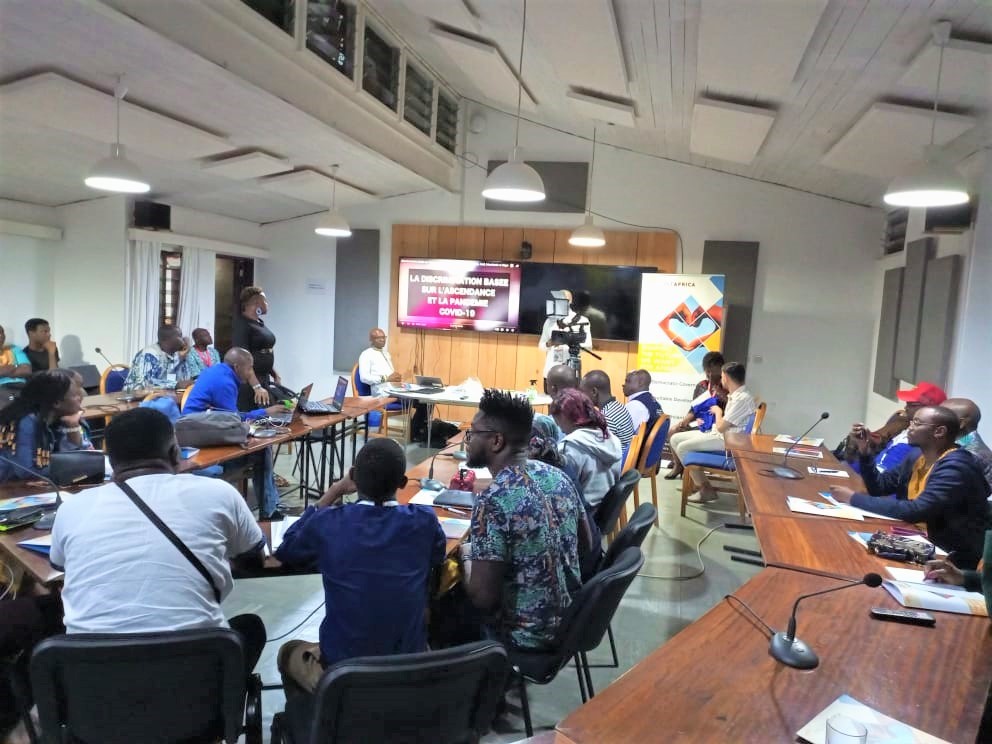
Accra, Sept. 28, GNA – Trust Africa, an organisation seeking to strengthen initiatives that address the most difficult challenges confronting the continent, has called for an end to slavery in all its forms within the comity of the African society.
“We are calling on countries to add slavery as a crime in their laws,” the Pan-African organisation advocated, saying strategies should be put in place to liberate those still under servitude for whatever reason.
“In this age, there are still people considered as slaves just because they are disadvantaged and so they are being exploited,” Mr. Ebrima Sall, Executive Director for Trust Africa, noted.
He was speaking on: ‘Discrimination, Indecent Jobs and Slavery in Burkina Faso, Mali, Mauritania and Niger,’ at the All-African Movement Assembly (AAMA), in Arusha, Tanzania.
The Assembly, held under the auspices of Africans Rising, a Pan-African movement, dealt with the Africans Rising Kilimanjaro Declaration and updates on its implementation, pandemics, and activism, as well as climate and economic justice, and dignity for Africans.
Migration and borderless Africa, civic space, protection of activists and activist movements, youth ideologies and looking into the future, Pan-African culture, freedom of expression and renaissance, were some of the topics discussed by the Assembly.
Mr. Sall observed, “For democracy to be acceptable, it has to give value to everyone, because we cannot talk about democracy when people are suffering.”
According to him, his organisation was committed to working with other bodies in Africa to fight the noble cause of the continent, especially in justice, peace, and unity.
“The African continent has a great future,” the Executive Director noted, and rallied the people to work hard for the continent’s sustainable growth.
As part of the programme, Mr. Abda Wone, the Communication Officer, Trust Africa, projected a documentary on the discrimination on indecent jobs and slavery in Burkina Faso, Mali, Mauritania, and Niger.
Giving the scenario of how slavery was practised in Africa, the Communication Officer showed how in Burkina Faso, slavery was practised in the North and in the South, and poor people were discriminated upon as they were being expelled to go and live in a particular village.
In Senegal, if one does not have a decent job, say a blacksmith for example, he does not get a decent burial, while in Niger, people work hard but all what they work for is given to their masters.
Mr. Wone cited Mauritania, where slavery had been institutionalized.
“That is why it has been abolished four times, but it is still being practiced by young white Americans on black Americans and there are no justice centres to investigate the issue.
Mr. Wone said the documentary was focused on slavery and other forms of discrimination such as class and status.
The lack of basic social services, he said, was the reason people were still being recruited as slaves today.
The situation was made worst with the coming of the COVID-19 pandemic – which led to the closure of borders and increase in prices of food items, he noted.
“Those affected are the vulnerable groups, women, children and the poor,” he lamented.
Despite the many educational campaigns and legislations instituted to end the abominable act, a sizable number of people were still under bondage in many communities, Mr. Wone observed.
With more than 50 countries and 16 percent of the world’s population, Africa is enormously diverse in terms of history, development, people, culture, and religion.
According to a 2016 Global Slavery Index: Africa Report, an estimated 9.2 million men, women, and children were living in modern slavery in Africa.
The region has the highest rate of prevalence, with 7.6 people living in modern slavery for every 1,000 people in the region.
When considering the forms of modern slavery, the rate of forced marriage (4.8 victims per 1,000 people in the region) was higher than the rate of forced labour (2.8 victims per 1,000 people in the region), says the Report.
It said over half of all victims of forced labour exploitation (54 percent) were held in debt bondage, with similar proportions of people in the region trapped through debt.
An estimated 400,000 people in the region were victims of forced sexual exploitation, accounting for eight percent of all victims of forced sexual exploitation and commercial sexual exploitation of children worldwide.
Within the region, Eritrea, Burundi, and Central African Republic were the countries with the highest prevalence of modern slavery, however, Nigeria and the Democratic Republic of the Congo had the highest absolute number and accounted for over one-quarter (26.3 percent) of all victims in the region, the Report noted.